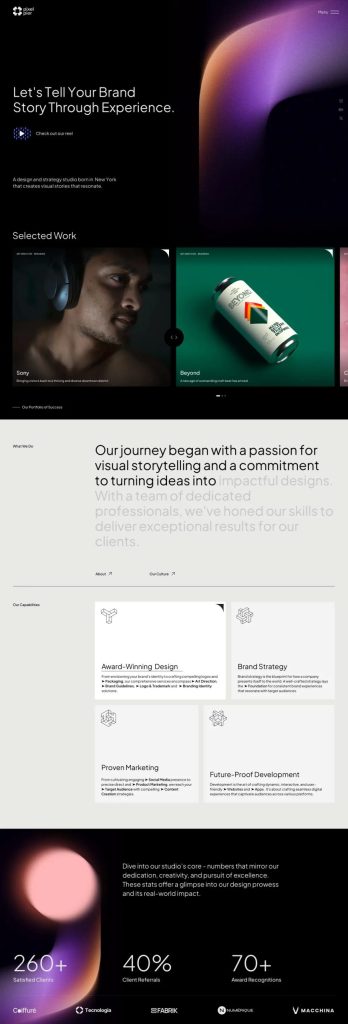As the world dives deeper into 2024, the field of Artificial Intelligence (AI) continues to evolve at an unprecedented pace. With the release of new large models, innovative tools, and specialized technologies, AI is transforming industries, enhancing productivity, and solving complex challenges. This article explores the latest advancements in AI, including Google’s Gemini 1.5 Pro, new APIs, and products designed for enterprise, cybersecurity, and creative sectors, as well as the emergence of debiased large language models (LLMs) for specialized applications.
Advancements in AI large models have been a game-changer for various applications, particularly with the recent release of **Google Gemini 1.5 Pro**. This model boasts impressive *multimodal capabilities*, allowing it to process and generate text, speech, and images seamlessly. One of its standout features is its *extended context understanding*, which enables the model to maintain the context across longer conversations, vastly improving user interactions. According to a recent report by *The Verge*, Gemini 1.5 Pro is designed to outperform its predecessors by incorporating robust training data that enhances its ability to comprehend and produce nuanced information across different formats (The Verge, February 2024).
Moreover, Gemini 1.5 Pro’s capabilities extend beyond traditional applications. Industries like healthcare and education can leverage its sophisticated understanding of context and multimodal processing to improve communication and foster stronger engagement. For instance, healthcare professionals can utilize the model to assist in patient diagnosis by interpreting medical literature alongside patient records, thus providing a comprehensive overview of a patient’s condition. This integration of multimodal AI holds promise for achieving more precise and timely outcomes (TechCrunch, January 2024).
In addition to large models, several new tools and APIs have emerged that integrate advanced AI for industry-specific tasks. One such tool is **Engagor**, a platform designed to enhance customer engagement through AI-driven analytics and automation. Engagor employs advanced sentiment analysis and sentiment prediction, enabling businesses to better understand customer sentiments across social media and other online platforms. This data-driven approach allows enterprises to tailor their marketing strategies, ultimately enhancing customer satisfaction and loyalty. An assessment by *Forbes* highlights Engagor’s robust analytics capabilities as a significant asset for brands in today’s competitive landscape (Forbes, March 2024).
Furthermore, advancements in *DALL-E*, OpenAI’s image generation model, have resulted in improved capabilities for graphic designers and digital artists. The latest version allows users to generate high-resolution images and illustrations based direct textual descriptions, vastly streamlining the creative process and enabling artists to focus more on ideation and concept creation. The potential applications of DALL-E stretch across editorial, advertising, and even gaming sectors, providing creators with powerful tools to enrich their projects. Industry experts from *Wired* have noted that these capabilities make DALL-E one of the most versatile tools in digital creativity available today (Wired, April 2024).
Another significant area of focus in AI development is the creation of reliable and debiased large language models (LLMs). Researchers have increasingly emphasized the importance of developing models that not only generate coherent and contextually relevant text but also minimize the risk of propagating biases. Recent innovations in debiasing techniques include improved data filtration methods during training phases, resulting in LLMs that present information more fairly across various demographics and viewpoints (MIT Technology Review, February 2024). These advancements have implications not only for AI-generated content but also for enhancing decision-making processes in businesses and public sectors by reducing the potential for biased outcomes.
Moreover, innovative AI products tailored for specific industries continue to emerge, particularly in fields such as enterprise solutions, cybersecurity, and creative industries. For instance, AI solutions focusing on enterprise resource planning (ERP) now integrate predictive analytics powered by machine learning, enabling businesses to forecast demand more accurately and streamline inventory management. Companies like SAP are leading the charge with tools that help organizations harness real-time data to make informed decisions (Gartner, March 2024).
In the domain of cybersecurity, AI-driven platforms are gaining traction to combat increasingly sophisticated cyber threats. From anomaly detection to automated threat response, solutions like Darktrace have employed adaptive AI that evolves alongside emerging threats. Recent reports reveal that these AI systems can achieve a proactive stance on cybersecurity by autonomously identifying vulnerabilities and responding to breaches in record time, thus reducing the strain on IT teams while ensuring better protection for sensitive data (CSO Online, April 2024).
The educational landscape has also seen transformative changes due to AI advancements. *AI in Corporate Training* is revolutionizing the way organizations approach employee development. Platforms utilize AI-driven personalized learning experiences, where algorithms assess individual learning styles and pace, effectively creating an adaptive curriculum for each employee. This tailored approach not only enhances knowledge retention but also boosts employee engagement and satisfaction levels within organizations (Training Magazine, February 2024).
Additionally, remote learning applications are equipped with advanced AI analysis tools, offering educators insights on student engagement and performance. Such tools help educators identify struggling students swiftly and develop intervention strategies tailored to individual needs. A recent study published in *EdTech Magazine* suggests that these innovations may significantly impact student outcomes, particularly in hybrid learning environments where adaptability is crucial (EdTech Magazine, March 2024).
In conclusion, the advancements in AI as of 2024 pave the way for remarkable transformations across industries. From powerful models like Google Gemini 1.5 Pro that integrate multimodal capabilities, to innovative tools enhancing customer engagement, and emerging technologies focusing on bias reduction, the impact of AI is profound. As enterprises continue to adopt AI-driven solutions for automation and productivity, and as education adapts to personalized learning experiences, the trajectory of AI developments heralds a new era of potential—one that encourages enhanced operational efficiencies, improved decision-making, and enriched experiences.
As we navigate through this wave of innovation, the key takeaway for stakeholders across sectors is to remain adaptable and informed, leveraging AI advancements to not just keep pace with competitors but also to lead in delivering exceptional value to customers and communities alike.
**Sources:**
– The Verge, February 2024.
– TechCrunch, January 2024.
– Forbes, March 2024.
– Wired, April 2024.
– MIT Technology Review, February 2024.
– Gartner, March 2024.
– CSO Online, April 2024.
– Training Magazine, February 2024.
– EdTech Magazine, March 2024.




























